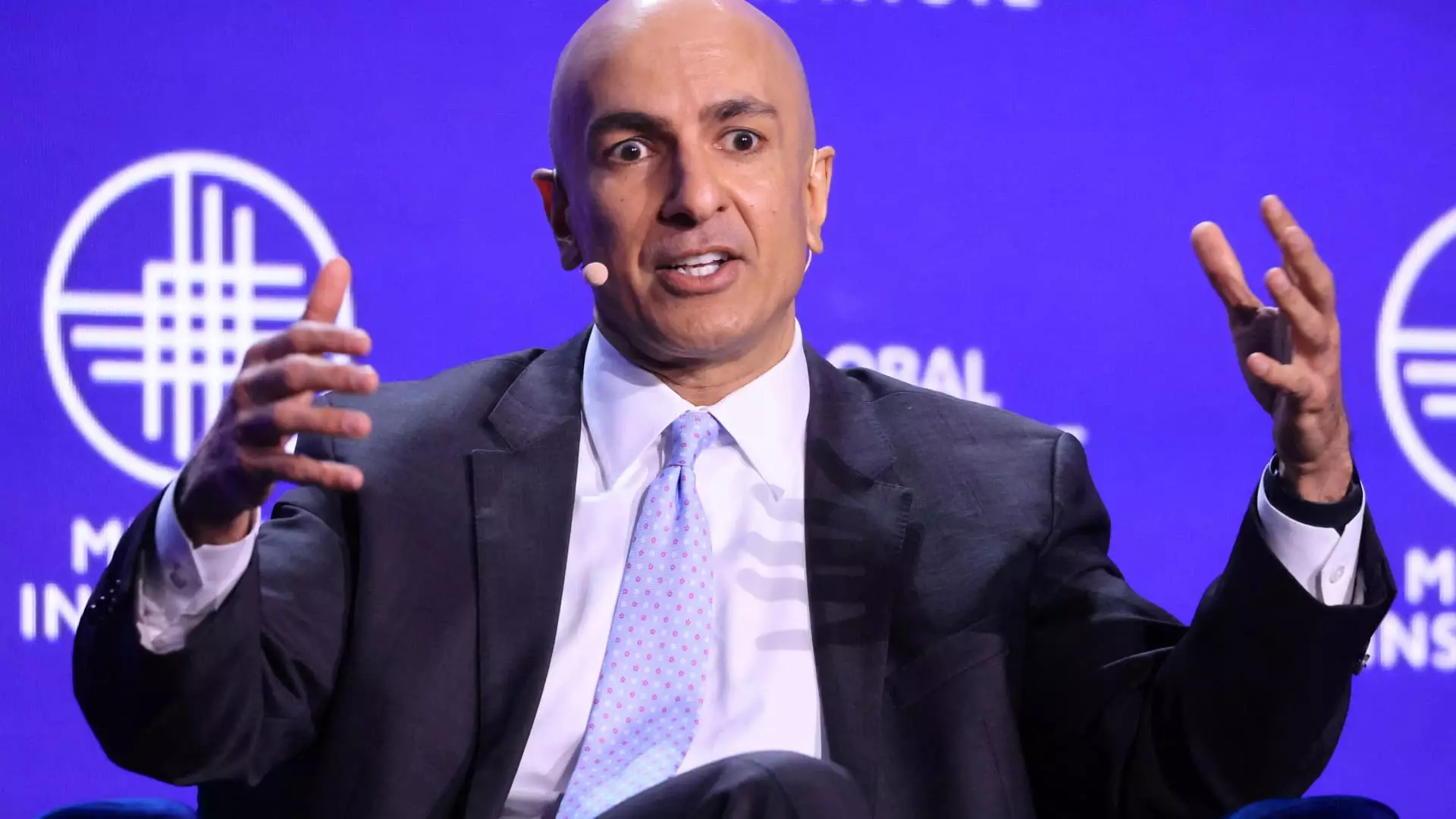The discourse surrounding tariffs has reignited with renewed vigor, particularly in the context of President-elect Donald Trump’s proposed economic strategies. Neel Kashkari, the President of the Minneapolis Federal Reserve, recently articulated notable concerns regarding the potential inflationary consequences of these tariff plans. While one-time tariffs may not pose a significant threat to long-term inflation, news from the Fed suggests that an escalation of trade hostilities could lead to a more precarious economic landscape.
Kashkari’s assertions stem from the economic turbulence experienced during Trump’s first term. The trade war with China, characterized by retaliatory tariffs, illustrates how initial measures can spiral into broader conflicts that ultimately exacerbate inflation issues. The proposed universal tariffs, including a staggering 60% rate specifically aimed at China, may ignite further retaliatory actions from global partners, reinforcing a cycle of increasing prices domestically and internationally. The intricate web of global trade relationships underpins the fragile balance that exists within the economy.
As inflation rates cautiously edge downwards after experiencing historic highs during the pandemic, Kashkari emphasized the importance of ongoing vigilance. “We’ve made a lot of progress in bringing inflation down,” he remarked, underscoring the central bank’s commitment to approaching its 2% inflation target. The Federal Reserve’s recent rate cuts are indicative of a strategic pivot towards loosening monetary policies, aimed at fostering economic stability. However, Kashkari remains equally cautious, suggesting future cuts will ultimately depend on evolving economic data.
The impact of aggressive tariff strategies remains an open question. Should these tariffs precipitate a backlash from trading partners, the inflationary effects could undermine the gains made thus far. Economists and industry leaders resonate with Kashkari’s estimates, acknowledging the unpredictable nature of retaliatory tactics and their potential to disrupt markets.
The intersection of politics and economics further complicates the matter. The notion of Trump, alongside key allies like Tesla CEO Elon Musk, influencing Federal Reserve policies raises concerns about the independence of the institution. Kashkari, however, conveys reassurance regarding the Fed’s detachment from political pressures, emphasizing, “I’m confident that we will continue to focus on our economic jobs.” The Federal Reserve’s autonomy is paramount, providing it with the leverage to enact policies based purely on economic health rather than short-term electoral incentives.
As the 2024 election approaches, the political landscape may continue to shape perceptions of economic strategies, yet the Fed’s priority remains clear: to maintain stability amid uncertainty. The ramifications of Trump’s proposed tariffs, therefore, necessitate careful monitoring and analysis as officials and analysts alike grapple with implications for inflation, global trade dynamics, and the overall economy.
Navigating the complexities of tariffs and inflation will be a pivotal challenge for the incoming administration. As the ramifications of proposed tariffs unfold, the Federal Reserve remains committed to its goals while adapting to the changing economic landscape. Recognizing the delicate balance between trade policies and inflationary impacts is crucial for sustainable economic growth in the years to come. With tensions mounting and uncertainties looming, stakeholders must proceed with caution, aware that the path forward remains fraught with both challenges and opportunities.

